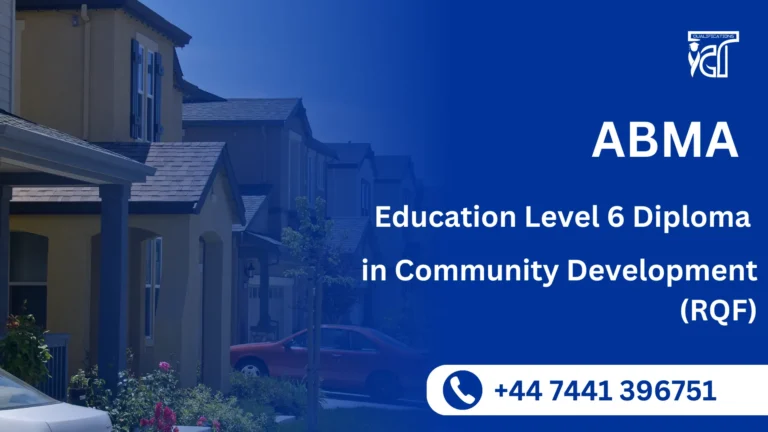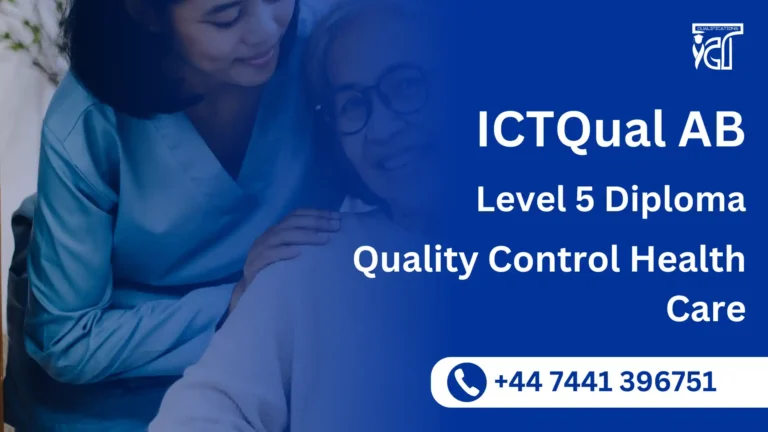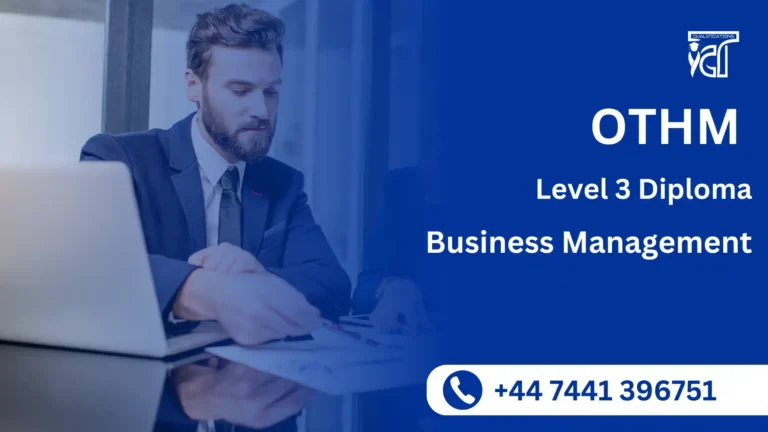The OTHM Level 4 Diploma in Law is a prestigious qualification designed to provide learners with a solid foundation in legal principles and practices. Regulated by Ofqual (The Office of Qualifications and Examinations Regulation), this diploma is an excellent choice for individuals aspiring to pursue a career in law or advance their legal knowledge.
The OTHM Level 4 Diploma in Law is equivalent to the first year of an undergraduate degree and is tailored for individuals looking to develop a comprehensive understanding of the legal system. This qualification covers key legal concepts, essential case law, and fundamental principles that form the basis of legal studies.
The OTHM Level 4 Diploma in Law is an excellent starting point for anyone interested in law. Whether you aim to progress in your legal career or advance to higher education, this qualification provides the necessary knowledge and skills to succeed in the legal field.
OTHM Level 4 Diploma in Law
The OTHM Level 4 Diploma in Law comprises six mandatory units, totaling 120 credits. The qualification requires 1,200 hours of Total Qualification Time (TQT) and includes 480 Guided Learning Hours (GLH), ensuring a comprehensive and structured learning experience.
Level 4 Mandatory units:
| Sr# | Unit Title | Credits | GLH |
|---|---|---|---|
| 1 | An Introduction to the English Legal System | 20 | 80 |
| 2 | Academic Writing and Research Skills for Law | 20 | 80 |
| 3 | Contract Law | 20 | 80 |
| 4 | Business Law | 20 | 80 |
| 5 | Public Law | 20 | 80 |
| 6 | Criminal Law | 20 | 80 |
GLH (Guided Learning Hours) and TQT (Total Qualification Time) are terms commonly used in vocational qualifications to help define the amount of time a learner is expected to spend on heir studies.
1. GLH (Guided Learning Hours)
GLH refers to the number of hours a learner spends being directly taught, supervised, or supported during their course. This includes the time spent in activities such as:
- Classroom instruction
- Practical workshops
- One-on-one tutoring or mentoring sessions
- Online learning sessions with tutor support
In other words, GLH represents the time that learners are actively engaged with their instructors or learning activities.
2. TQT (Total Qualification Time)
TQT represents the total amount of time a learner is expected to invest in completing a qualification, including:
- GLH (Guided Learning Hours): Time spent on direct learning, as explained above.
- Self-Directed Learning: This includes time spent on independent study, research, assignment completion, preparation for exams, and any other work the learner does outside of direct teaching hours.
TQT is a broader measure that includes all the time required to achieve the qualification. It helps learners and employers understand the overall commitment required for the qualification.
Key Differences Between GLH and TQT:
- GLH focuses on direct learning with guidance or supervision.
- TQT includes GLH as well as independent study time and other learning-related activities.
Example:
If a qualification has a TQT of 600 hours and a GLH of 250 hours, it means the learner should spend 250 hours in direct learning (classroom, online, or tutor-led sessions) and 350 hours on independent study or research.
Learning Outcomes of OTHM Level 4 Diploma in Law
An Introduction to the English Legal System
- Understand how laws are created in England and Wales.
- Understand the role of the legal profession.
- Understand the role of alternative dispute resolution.
Academic Writing and Research Skills for Law
- Understand how to research case law.
- Understand how to research legislative requirements.
- Understand skills of legal citation and writing.
- Be able to analyse personal strengths and areas for development in relation to academic writing skills.
Contract Law
- Understand the requirements of a binding agreement.
- Understand the contents of a contract.
- Understand the factors that may vitiate a contract.
- Understand how a contract may be breached.
Business Law
- Understand the principles of partnership law.
- Understand how to form a company.
- Understand the agency powers created within Limited Liability Partnership’s and Companies.
Public Law
- Understand the nature of constitutions and the separation of powers.
- Understand Parliamentary Powers.
- Understand the role of Judicial Review.
Criminal Law
- Understand the actus reus and mens rea requirements of criminal offences.
- Understand the classification of violent offences and non-violent offences.
- Understand defences to criminal conduct.
The Course Benefits of the OTHM Level 4 Diploma in Law are as :
- Industry Recognition: Being an Ofqual-regulated qualification, it is widely recognized by employers and academic institutions worldwide.
- No Exams, Only Assignments: The assignment-based approach ensures a practical learning experience, reducing exam pressure while enhancing analytical and research skills.
- Enhanced Career Prospects: Graduates can pursue roles in legal administration, compliance, paralegal work, or continue their education to obtain a full law degree.
- Skill Development: Develops critical thinking, problem-solving, and research skills that are essential for legal professionals.
- Flexible Study Options: Suitable for individuals who need to balance their studies with work or other commitments.
- Stepping Stone to Higher Education: Provides a pathway to Level 5 and further legal qualifications, paving the way for a successful legal career.
The ideal learner for the OTHM Level 4 Diploma in Law includes:
- Students looking for an alternative pathway to a law degree – Those who want to gain legal knowledge before committing to a full university program.
- Career changers – Individuals who wish to transition into the legal sector from a different industry.
- Working professionals – Those already in legal or administrative roles seeking to enhance their qualifications and progress in their careers.
- Aspiring legal practitioners – Individuals aiming to become legal assistants, paralegals, or compliance officers.
- Lifelong learners – Those with a keen interest in understanding legal principles and their application in different industries.
Entry Requirements
Register Now
Qualification Process
Qualification Process OTHM Level 4 Diploma in Law
- Self-Assessment:
Begin by evaluating your eligibility to ensure you meet the qualification requirements, including work experience, knowledge, and language proficiency. - Registration:
Complete your registration by submitting the required documents, including a scanned copy of a valid ID, and paying the registration fee. - Induction:
An assessor will conduct an induction to confirm your eligibility for the course and explain the evidence requirements. If you do not meet the criteria, your registration will be canceled, and the fee will be refunded. - Assignments & Evidence Submission:
Provide all assignments and the necessary evidence based on the assessment criteria outlined in the course. If you are unsure of the required evidence, consult with the assessor for guidance on the type and nature of evidence needed. - Feedback and Revision:
The assessor will review your submitted evidence and provide feedback. Evidence that meets the criteria will be marked as “Criteria Met,” while any gaps will be identified. You will be asked to revise and resubmit if needed. - Competence Evidence:
Submit final evidence demonstrating that all learning outcomes have been met. This evidence will be marked as “Criteria Met” by the assessor once it is satisfactory. - Internal Quality Assurance (IQA):
The Internal Quality Assurance Verifier (IQA) will review your evidence to ensure consistency, quality, and compliance with standards. - External Verification:
The IQA will submit your portfolio to OTHM External Quality Assurance Versifier (EQA) for final confirmation. The EQA may contact you directly to verify the authenticity of your evidence. - Certification:
Upon successful completion of all checks, OTHM will issue your official certificate, confirming that you have attained the OTHM Level 4 Diploma in Law







